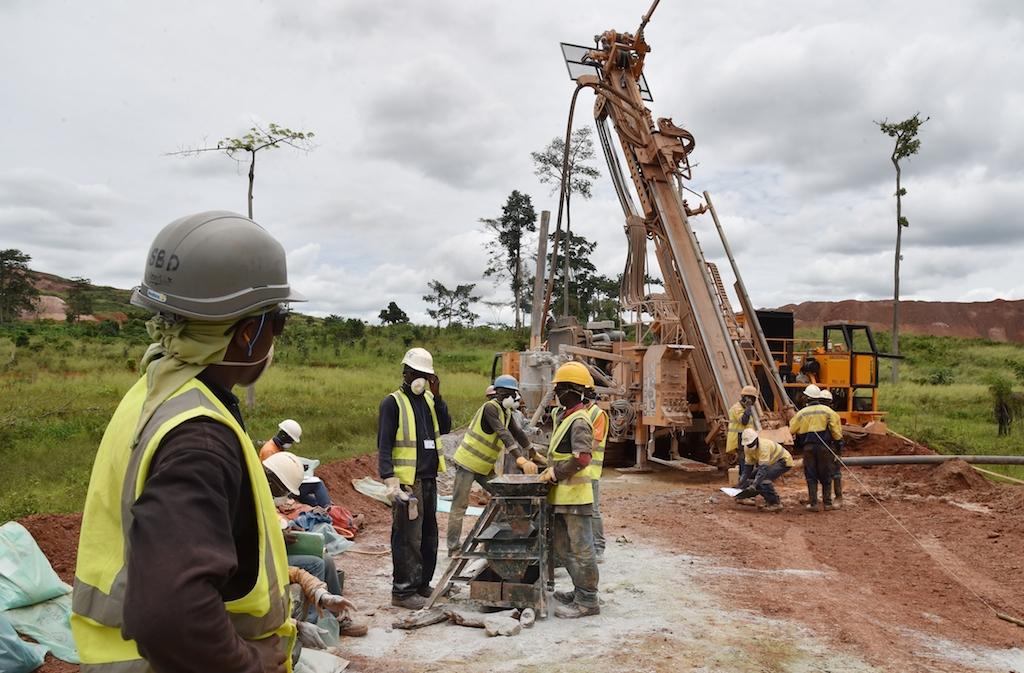‘Africa rising’ narrative takes a hit as foreign investors scale back investment
Employees at work at the Agbaou gold mine, located approximately 200km northwest of the port city of Abidjan, Ivory Coast.
CAPE TOWN, South Africa — As mining industry bigwigs meet in Cape Town this week to talk investment in Africa, there is a palpable sense of what are politely being called “challenging times.”
Until recently, the tone at Africa’s annual Mining Indaba — a Zulu word that means meeting — was typically one of unbridled optimism.
A boom in commodity prices over the last decade meant big interest in mining projects on the continent, helping fuel the “Africa rising” narrative — a continent rich in natural resources and full of investment and growth potential.
But times have changed. A plunge in global commodity prices, led by slowing demand from China, has seen Africa hard hit as investors scale back plans and cut costs. Miners will reduce spending by $20 billion this year, with much of it in Africa, according to Macquarie Group Ltd., the Australian investment bank.
There are other factors contributing to a bleak time for miners: a five-month strike in South Africa’s platinum sector, the Ebola outbreak in West Africa that has damaged mining production in Sierra Leone and Liberia, and a dramatic hike in mining taxes in Zambia.
South Africa is also faced with a severe electricity shortage, leading to a system of rolling blackouts known here as “loadshedding” that could continue for the next three years, a worrying prospect for the mining industry.
Delegates to the Mining Indaba got a firsthand glimpse of the problem, with many hotels throughout Cape Town going dark for several hours a day.
A risky business
It was a stark reminder of the difficulties in doing business in Africa, a continent full of opportunity but also risks, such as poor infrastructure — electricity in particular — along with labor issues and abrupt policy changes.
“Despite the rosy picture that is repeatedly painted of foreign interest and investments in Africa, investors often still have many unanswered questions when looking to invest in Africa’s extractive industries,” Robbie Cheadle, an associate director with KPMG in South Africa, said in a report.
These industries “are often flagged as having higher risks potential relating to policy uncertainty or market instability,” Cheadle said.
Africa holds an estimated 30 percent of the world’s mineral resources. Revenues from these resources have the potential to improve the lives of many on the continent.
But for countries dependent on mineral exports, such as Zambia, Botswana and Guinea, this plunge in commodity prices and change in outlook by investors could mean trouble ahead. Some firms are quickly selling off assets, while others are simply deciding to pull back on planned big projects.
In Zambia, a recent government decision to triple mining royalties has added to the woes.
“We are facing a very, very difficult situation,” Tom Albanese, CEO of copper mining firm Vedanta Resources said during a panel discussion.
Hanging tough
Some analysts argue that the drop in global demand for raw materials could have positive results for Africa, by spurring development away from minerals and toward value-added products and services. Manufacturing, construction and domestic demand from rising incomes have all become increasingly important to African economies.
In a relatively rosy outlook, Standard Bank, Africa’s biggest lender, argues that while 2015 will be a tough year for the mining industry, prospects look steady over the medium term.
“The broad fundamentals of the African mining narrative are still firmly in place,” Rajat Kohli, head of international mining and metals, said in a statement.
Kohli argues that while Africa is experiencing a slowdown in new investment, it remains well positioned to benefit from an economic recovery — provided mineral producers can hang tough in the interim.
“The reality is that the continent still boasts an abundance of natural resource deposits which are relatively underdeveloped,” he said.
We want to hear your feedback so we can keep improving our website, theworld.org. Please fill out this quick survey and let us know your thoughts (your answers will be anonymous). Thanks for your time!
